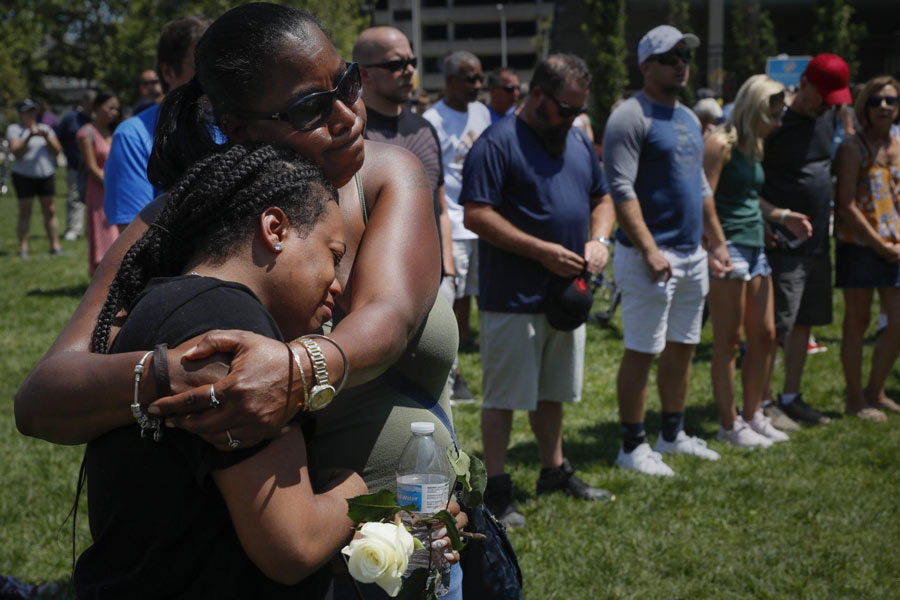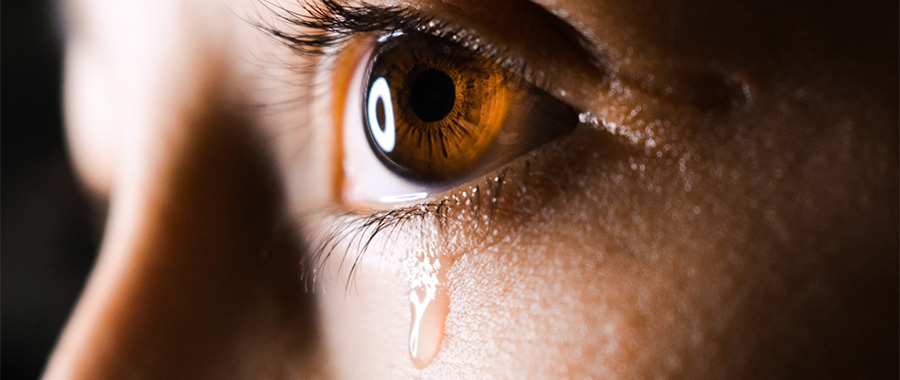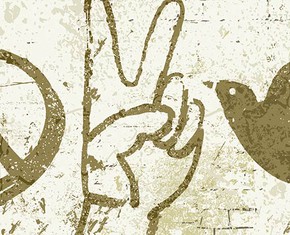The views expressed in our content reflect individual perspectives and do not represent the authoritative views of the Baha'i Faith.
Usually, when we think about random acts of senseless, hate-driven violence, we pray for the innocent victims—but can you imagine what happens to the soul of a mass killer in the next world?
I shudder at the thought.
Baha’is definitely do not believe in a physical place called hell where souls burn for eternity in payment for their evil deeds—but the Baha’i teachings do definitively say that in the next world God will deliver justice for what we do in this world:
This nether world shall pass away and all that ye delight in it with it, and the angels of His wrath shall assemble you in the presence of the Mighty and Omnipotent King. And you shall be asked of what you have wrought in your days for naught is left in the heavens or earth but that it is written in the tablets of His Knowledge. Then no one will assist you and none will befriend you and nothing will avail you but what you have planted in the field of your deeds. – Baha’u’llah, The Tablet of Patience, provisional translation by Khazeh Fananipazir.
In the United States, we’re suffering from a nationwide epidemic of homegrown terrorism and mass shootings, most committed by young white males and primarily driven by hatred of people of color or immigrants. These killers, whether deranged or just simply hate-filled white supremacists, typically use military-grade weapons capable of killing multiple people and turn those weapons on those they don’t even know.
This completely baffles most sane people, who ask “Why??”
Because the United States can’t seem to find a way—at least not yet—to slow down or stop this deadly epidemic, we typically hear many in the public eye express the old, tired nostrum of “We send our thoughts and prayers.” Some use that phrase instead of actually taking any action to address the issue. This cliché, scoffed at by those who believe only political and regulatory change will address the epidemic, has now become toxic. Utter it, and face utter scorn.
Personally, though, I do have some thoughts and prayers to offer.
First, my prayers only represent a tiny fraction of the imploring pleas to stop this terrible, senseless carnage. After these horrific events occur, millions upon millions of prayers must undoubtedly ascend from this human world toward the next one, intended to soothe the souls of the innocent victims and smooth their sudden, violent transition from life to death and beyond. Those who believe in a beneficent Creator implore God to illumine the innocent victims’ hearts and welcome them with tender mercy and compassion. Friends, relatives, loved ones, even complete strangers—all supplicate the Supreme Being to make the victim’s journeys peaceful, to bind their wounds and heal their souls.
Just imagine, for a moment, if you could visualize those prayers like you can see a meteor shower; each one lit up with a heavenly, burning light blazing across the night sky. If prayers were visual meteors, after these horrible mass killings we would see those prayers ascending in uncountable numbers from people’s homes and their houses of worship all around the planet, intended to convey hope, kindness and love to those so unjustly and violently murdered. Made visible, they would light up the world.
In contrast, as you might imagine, a relatively tiny number of prayers accompany the souls of the killers. Perhaps their families or friends regretfully and painfully think about what caused them to commit such heinous crimes against humanity, and say a prayer for the diminishment of their hatred or the healing of their madness in the next world.
This realization made me wonder the other day, as my wife and I said prayers for the victims of the Gilroy, Dayton and El Paso mass murders. Suddenly, I wondered as we prayed for the souls of the victims if I should also pray for the souls of the killers. I have no clue where that notion came from, and it surprised me.

Mourners gather for vigil in Dayton, Ohio. (AP Photo/John Minchillo)
At first, my mind immediately rejected the idea, repulsed at the mere thought of offering such horrible terrorists and criminals anything, even a prayerful moment, for the grief, loss, fear and pain they caused. I suspect many of us probably feel that way. In cases where so many innocents die, most would rather seek rough justice than compassion or mercy, and that’s completely understandable. The human heart and mind recoils at such randomness, such violence, such senseless death.
But as my unwelcome thought persisted a little more, I happened at that moment to be reading a remarkable prayer from the Baha’i teachings. Written by Abdu’l-Baha during the unconscionable slaughter and carnage of World War I, it actually asks God’s forgiveness for those doing the killing:
O God, my God! Thou seest how black darkness is enshrouding all regions, how all countries are burning with the flame of dissension, and the fire of war and carnage is blazing throughout the East and the West. Blood is flowing, corpses bestrew the ground, and severed heads are fallen on the dust of the battlefield.
O Lord! Have pity on these ignorant ones and look upon them with the eye of forgiveness and pardon. Extinguish this fire, so that these dense clouds which obscure the horizon may be scattered, the Sun of Reality shine forth with the rays of conciliation, this intense gloom be dispelled and the resplendent light of peace shed its radiance upon all countries.
O Lord! Draw up the people from the abyss of the ocean of hatred and enmity, and deliver them from this impenetrable darkness. Unite their hearts, and brighten their eyes with the light of peace and reconciliation. Deliver them from the depths of war and bloodshed, and free them from the darkness of error. Remove the veil from their eyes, and enlighten their hearts with the light of guidance. Treat them with Thy tender mercy and compassion, and deal not with them according to Thy justice and wrath which cause the limbs of the mighty to quake. – Abdu’l-Baha, Tablets of the Divine Plan, pp. 56-57.
Immediately, I thought that Abdu’l-Baha must have meant the soldiers killing each other when he referred to “these ignorant ones.” He said “Draw up the people from the abyss of the ocean of hatred and enmity, and deliver them from this impenetrable darkness,” an apt description of that terrible war. In the prayer, he asked God to “Treat them with Thy tender mercy and compassion” instead of His justice and wrath. Apparently, he had some sympathy for the people who kill others out of ignorance, prejudice or hatred. Perhaps, I thought, that sympathy arose out of a deeper knowledge of the fate of the killers’ souls. I wondered: should I try to develop that level of empathy, too?
















Comments
Sign in or create an account
Continue with Googleor